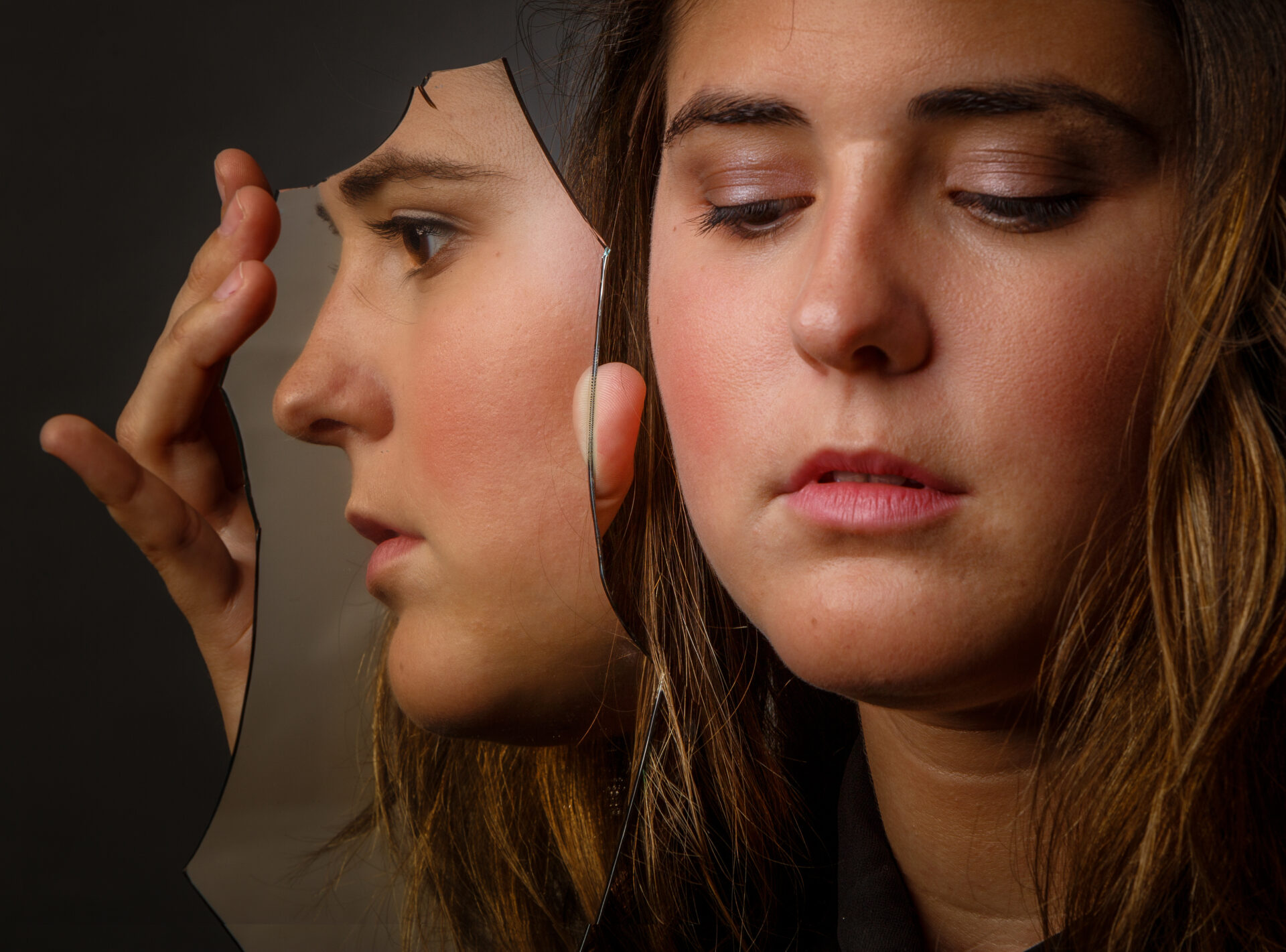Bipolar I Disorder

Bipolar I disorder, also known as manic-depressive illness, is a mental health condition characterized by extreme mood swings that include manic episodes, depressive episodes, and episodes with both manic and depressive periods. These mood swings can be intense and disruptive, affecting a person’s ability to function in daily life.
Understanding the causes, symptoms, differences from Bipolar II disorder, impacts on individuals’ lives, and treatment options for Bipolar I disorder is crucial for effective management and support.
Defining Bipolar I
Bipolar I disorder is a mood disorder that involves periods of severe mood episodes. These episodes are characterized by unusual shifts in mood, energy, activity levels, and the ability to carry out day-to-day tasks. Individuals with Bipolar I disorder experience manic episodes that last at least seven days or are severe enough to require immediate hospitalization. Some manic episodes may involve psychosis, including hallucinations or delusions.
Depressive episodes typically last at least two weeks and are characterized by feelings of sadness, hopelessness, and loss of interest in activities.
Symptoms of Bipolar I
The symptoms of Bipolar I disorder can vary widely between individuals and may include:
- Manic Episodes
- Increased energy, activity, and restlessness
- Excessive talkativeness or rapid speech
- Racing thoughts and jumping from one idea to another
- Decreased need for sleep
- Grandiose beliefs about one’s abilities or powers
- Impulsive or reckless behavior, such as spending sprees, reckless driving, or risky sexual behavior
- Agitation or irritability
- Depressive Episodes
- Persistent feelings of sadness, anxiety, or emptiness
- Feelings of hopelessness or pessimism
- Loss of interest or pleasure in activities once enjoyed
- Changes in appetite or weight
- Sleep disturbances, such as insomnia or sleeping too much
- Fatigue or loss of energy
- Feelings of worthlessness or guilt
- Difficulty concentrating or making decisions
- Thoughts of death or suicide
What causes Bipolar I?
The exact cause of Bipolar I disorder is not fully understood, but it is believed to be a combination of genetic, biological, and environmental factors. Some research suggests that people with a family history of Bipolar I disorder may be more likely to develop the condition. Neurochemical imbalances, such as changes in the levels of neurotransmitters like dopamine, serotonin, and norepinephrine, may also play a role in the development of Bipolar I disorder.
The Difference Between Bipolar I and Bipolar II
Bipolar I disorder is distinguished from Bipolar II disorder primarily by the presence of manic episodes.
In Bipolar II disorder, individuals experience hypomanic episodes, which are less severe than full manic episodes. Hypomanic episodes do not cause significant impairment in functioning and may even be perceived positively by the individual, whereas manic episodes are more intense and can lead to severe disruption in daily life. Additionally, hypomania typically does not involve psychosis like bipolar I.
How Bipolar I Impacts Daily Life
Bipolar I disorder can have a profound impact on an individual’s life, affecting their relationships, work, and overall quality of life. During manic episodes, individuals may engage in risky behaviors that can lead to financial, legal, or interpersonal problems. They may also experience strained relationships due to irritability, impulsivity, or erratic behavior.
Depressive episodes can make it difficult for individuals to perform daily tasks, leading to problems at work or school. Feelings of hopelessness and worthlessness can also increase the risk of suicide, making it crucial for individuals with Bipolar I disorder to receive appropriate treatment and support.
Treating Bipolar I
While symptoms can vary over time, bipolar I requires lifelong treatment. Early diagnosis and intervention are key to managing the condition effectively.
Treatment for Bipolar I disorder typically involves a combination of medication, psychotherapy, and lifestyle changes. Mood stabilizers, such as lithium or valproate, are commonly prescribed to help control manic and depressive episodes. Antipsychotic medications may also be used to manage severe symptoms.
Psychotherapy, such as cognitive-behavioral therapy (CBT) or interpersonal therapy, can help individuals with Bipolar I disorder learn to manage their symptoms, cope with stress, and improve their relationships. Lifestyle changes, such as maintaining a regular sleep schedule, exercising regularly, and avoiding alcohol and drugs, can also help manage symptoms and improve overall well-being.
In severe cases, hospitalization may be necessary to ensure the safety of the individual and provide intensive treatment. Electroconvulsive therapy (ECT) may be considered for individuals who do not respond to other treatments.

When to Seek Care
If symptoms interfere with daily life, consult a mental health professional. A psychiatrist or psychologist can provide an accurate diagnosis and develop a treatment plan tailored to an individual’s needs.
Some signs that Bipolar I is impacting you or someone you love include:
Mood Swings
Severe mood swings, including manic episodes or depressive episodes, that last for an extended period or are affecting daily functioning.
Changes in Behavior
Noticeable changes in behavior, such as increased irritability, impulsivity, or reckless behavior during manic episodes, or withdrawal, lack of energy, or changes in sleep or appetite during depressive episodes.
Difficulty Functioning
Difficulty maintaining relationships, performing at work or school, or managing daily tasks due to mood swings or other symptoms.
Suicidal Thoughts or Behaviors
Any thoughts or behaviors related to self-harm or suicide should be taken seriously and indicate the need to get professional help.
Substance Abuse
Increased use of alcohol or drugs to cope with mood swings or other symptoms.
Disruption in Sleep Patterns
Significant changes in sleep patterns, such as insomnia or sleeping too much, that are affecting daily life.
Impaired Judgment
Engaging in risky or impulsive behavior that is out of character, such as reckless driving, excessive spending, or risky sexual behavior.
Family History
A family history of Bipolar I disorder, or other mood disorders may increase the risk, and individuals with a family history should be vigilant for symptoms and seek professional care if needed.
Personal Insight
If the individual recognizes that their mood swings or behavior are causing problems in their life and are affecting their relationships or ability to function, they should seek professional help.
It’s important to remember that Bipolar I disorder is a treatable condition, and early intervention can lead to better outcomes. To get help, contact your physician or schedule an appointment with a mental health professional.
And if you or someone you love experiences suicidal thoughts, you can get emergency help by:
- Visiting your nearest emergency room or urgent care facility.
- Contacting a suicide hotline. In the U.S., call or text 988 to reach the 988 Suicide & Crisis Lifeline, available 24 hours a day, seven days a week. Services are free and confidential. The Lifeline has a Spanish language phone line at 1-888-628-9454 (toll-free).
- Reaching out to a close friend or loved one.
- Contacting a minister, spiritual leader or someone else in your faith community.
- U.S. veterans or service members who are in crisis can call 988 and then press “1” for the Veterans Crisis Line, text 838255, or chat online.
How to Support Loved Ones with Bipolar
Supporting someone with Bipolar I disorder can make a significant difference in their well-being and recovery. Remember that patience, compassion, and understanding are key.
You can support a friend or loved one with Bipolar I by:
- Educate Yourself: Learn about Bipolar I disorder to understand what your loved one is experiencing. This can help you provide more effective support and reduce misunderstandings.
- Be Understanding: Recognize that mood swings are a part of the disorder and may not be within your loved one’s control. Be patient and empathetic, and avoid judgment or criticism.
- Encourage Treatment: Encourage your loved one to seek professional help and follow their treatment plan. Offer to accompany them to appointments or help them find a therapist or psychiatrist if needed.
- Help Them Maintain a Routine: Establishing a regular daily routine can help stabilize moods. Encourage your loved one to maintain regular sleep patterns, eat balanced meals, and engage in regular exercise.
- Listen and Offer Support: Be a supportive listener when your loved one wants to talk. Offer encouragement and reassurance, and let them know you are there for them.
- Monitor Their Mood: Pay attention to changes in your loved one’s mood and behavior. Encourage them to track their moods and symptoms and seek help if they notice any significant changes.
- Encourage Healthy Habits: Support your loved one in maintaining a healthy lifestyle, including regular exercise, healthy eating, and avoiding alcohol and drugs.
- Be Prepared for Crisis Situations: Familiarize yourself with the warning signs of a manic or depressive episode and have a plan in place for how to respond in a crisis. This may include knowing who to contact for help or having a list of emergency contacts.
- Take Care of Yourself: Supporting someone with Bipolar I disorder can be challenging, so it’s essential to take care of your own physical and mental health. Seek support from friends, family, or a therapist if needed.
- Encourage Social Support: Encourage your loved one to maintain social connections and participate in activities they enjoy. Social support can be a valuable resource in managing the disorder.
Bipolar I disorder is a complex mental health condition that requires lifelong support and treatment. While it can have a significant impact on an individual’s life, with proper treatment and support, many people with Bipolar I disorder can manage symptoms and lead satisfying, gratifying lives.
If you or a loved one struggles with bipolar disorder, talk with us. Aster Mental Health provides compassionate care and innovative treatments for individuals who want support in their mental health journey.
Contact us today to schedule a consultation.
